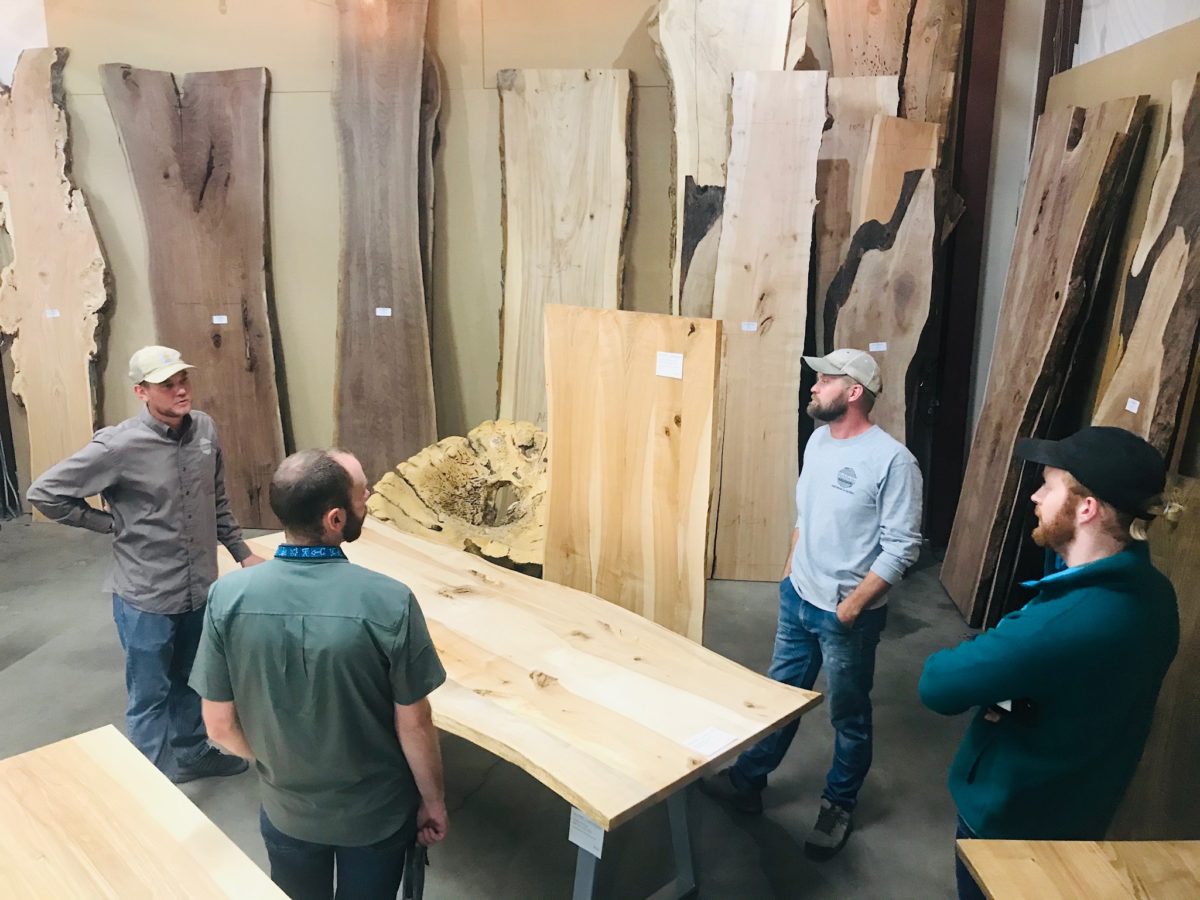DC-area founder Ben Christensen is a technologist with a background in climate and carbon science. But when he set out to create a startup, he went beyond his education and gathered inspiration from his carpenter father.
What he noticed, as renovation projects and home office builds grew over the pandemic, is that there was a large number of salvageable wood, meaning fallen urban trees and branches, that was being wasted. Instead of being repurposed, it was typically headed straight for the landfill.
“We have trees that are coming down naturally and came down from the Jefferson Memorial, or from the National Mall, and have seen every inauguration, and have seen these really big moments of history,” Christensen told Technical.ly. “[Repurposing it] is a way to help connect people to their communities and to places that matter, and I think that type of connection is really, really important.”
This revelation led to the creation of Cambium Carbon, a seven-person wood tech startup in DuPont Circle, on Earth Day in 2020. The company uses software to connect local manufacturers and suppliers with salvageable wood and wood products. Its process starts with the wood itself, which goes to local millers and sawyers that then link up with architects and furniture makers for flooring and other products that consumers want. The company just closed a $3.2 million seed round that MaC Venture Capital led with additional participation from Soma Capital, Joe Tsai, Revolution‘s Rise of the Rest seed fund and Blue Ivy Ventures, among others.
The platform and funds taking wood from tree to treehouse
Cofounder and CEO Christensen said he wants, through Cambium, to transform manufacturing for wood and wood products. With the Cambium SaaS platform, called Traece, consumers can buy products from local manufacturers and thus keep climate costs down. On the other side, its software essentially does business operations for wood product shops like sawmills, secondary manufacturers and anyone who “has an inventory of wood and is somehow transforming that,” he said. It largely tracks inventory and connects local manufacturers, who often cannot sell to large national buyers due to scale, with local shops and distributors. Christensen said Cambium currently has about 140 suppliers in its network.
“One of the things that’s really cool is we can actually tell you, if you buy a table from us, we tell you exactly where that wood came from, exactly where it was processed and who touched it throughout that build,” Christensen said.
Cambium has found a good amount of success since debuting on the DC scene. Last spring, the company raised a $625,000 seed round with angel investors’ largely non-diluted capital. Cambium has also nabbed a number of grants, Christensen explained, since it is a public benefit corporation.
With this new round, he said, the company is really looking for marketplace building. A large portion of the funds will be dedicated to growing the company’s DC-based tech team and overall scaling. Christensen hopes the funds can help solidify a national footprint, enabling Cambium to partner with large furniture, architectures and real estate companies.

Within the climate tech sector, Christensen said that products like wood are often left out of the conversation. He hopes that the company’s growth can help boost some of those “forgotten industries” in environmental tech.
“I’m a big believer that there are no silver bullets and we really need the kitchen sink approach,” Christensen said. “And that means that there are so many places where it’s critical for us to be innovating.”
Building both wood products and local economies
For its part, Cambium reduces the number of emissions in wood and wood products by producing more goods locally. Christensen added that producing more locally also means more investment in local jobs and workforce development. By Investing in the local ecosystem can facilitate more local supply chains and demands, he said, which can create more stability in the region.
Christensen things that Cambium’s potential reach is broad, especially considering the far reach of wood and building materials. Even tech companies, he noted, still buy standing desks (whether at home or in the office), flooring and conference tables for their employees.
“Everybody touches this space, [so] it’s one that is really strong, it’s definitely really growing and there’s more and more demand for wood,” Christensen said. “And I think that is going to continue to be true.”







